Text
Quartidi 24 Germinal an CCXXXII
(Vendredi 12 avril 2024 / Friday, April 12th, 2024)
🇨🇵 Texte en français et en anglais / Text in French and English 🇬🇧/🇺🇲
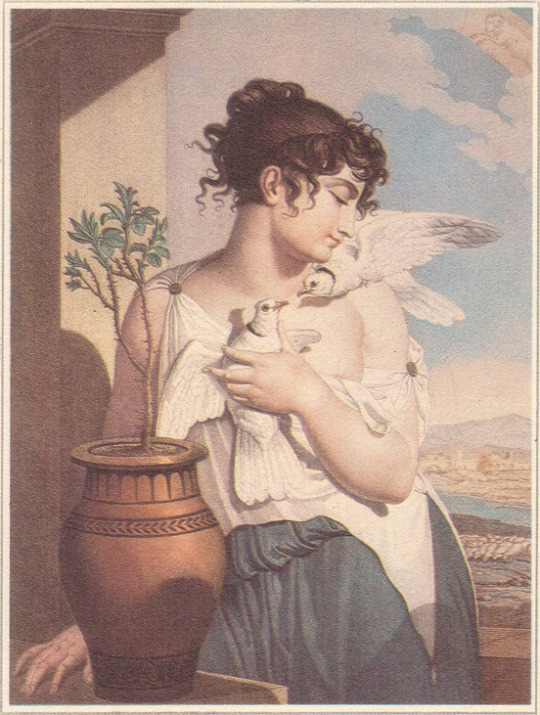

Le calendrier républicain, adopté pendant la Révolution française, était une tentative de rompre avec le passé monarchique et catholique en instaurant un système de mesure du temps basé sur les valeurs républicaines et agricoles. Chaque jour du calendrier républicain était dédié à une plante, un animal, un outil ou un événement symbolique, reflétant ainsi les idéaux de la Révolution.
Le mois de Germinal dans le calendrier républicain français représente le renouveau et la vitalité de la nature au printemps. Du 20 mars au 19 avril, Germinal est le mois où la terre se réveille de son sommeil hivernal, où les bourgeons éclosent et où les premières fleurs colorent les paysages. Il incarne le début de la saison des semailles et le travail de la terre, symbolisant ainsi l'espoir et la promesse d'une nouvelle récolte. Germinal rappelle également les idéaux républicains de liberté, d'égalité et de fraternité, en invitant chacun à contribuer à l'essor de la société et à cultiver un avenir meilleur.
Le 24 Germinal dans le calendrier républicain français correspondait à une journée dédiée à la roquette, une délicieuse salade aux saveurs piquantes et rafraîchissantes. Cette journée était une occasion pour les citoyens de célébrer ce légume aux nombreuses vertus nutritives et gustatives.
La roquette, également connue sous le nom d'Eruca sativa, est une plante herbacée appartenant à la famille des Brassicacées. Originaire du bassin méditerranéen, elle est appréciée depuis l'Antiquité pour son goût relevé et ses bienfaits pour la santé.
Riches en vitamines A, C et K, ainsi qu'en minéraux tels que le calcium, le potassium et le magnésium, les feuilles de roquette sont non seulement délicieuses, mais aussi très nutritives. Leur consommation régulière contribue à renforcer le système immunitaire, à favoriser la santé des os et à maintenir une peau saine.
En cuisine, la roquette est polyvalente et peut être utilisée de diverses manières. Que ce soit en salade, ajoutée à des pizzas, des pâtes ou des sandwiches, ou encore en accompagnement de viandes et de poissons, elle apporte une touche de fraîcheur et de piquant à de nombreux plats.
Célébrer la journée du 24 Germinal était donc l'occasion parfaite pour découvrir ou redécouvrir les délices de la roquette, tout en appréciant ses bienfaits pour la santé. Que ce soit en cultivant ses propres plants dans un jardin, en visitant un marché local pour en acheter, ou simplement en partageant un repas à base de roquette avec des amis et des proches, cette journée était une invitation à célébrer ce légume généreux et savoureux.
***
The Republican calendar, adopted during the French Revolution, was an attempt to break away from the monarchic and Catholic past by establishing a system of time measurement based on republican and agricultural values. Each day of the Republican calendar was dedicated to a plant, an animal, a tool, or a symbolic event, thus reflecting the ideals of the Revolution.
The month of Germinal in the French Republican calendar represents the renewal and vitality of nature in spring. From March 20 to April 19, Germinal is the month when the earth awakens from its winter slumber, when buds burst open, and the first flowers color the landscapes. It embodies the beginning of the sowing season and the work of the land, symbolizing hope and the promise of a new harvest. Germinal also recalls the republican ideals of liberty, equality, and fraternity, inviting everyone to contribute to the advancement of society and cultivate a better future.
The 24th day of Germinal in the French Republican calendar was dedicated to arugula, a delicious salad known for its peppery flavor and refreshing taste. This day was an opportunity for citizens to celebrate this vegetable with numerous nutritional and culinary virtues.
Arugula, also known as Eruca sativa, is an herbaceous plant belonging to the Brassicaceae family. Originating from the Mediterranean basin, it has been appreciated since antiquity for its distinctive taste and health benefits.
Rich in vitamins A, C, and K, as well as minerals such as calcium, potassium, and magnesium, arugula leaves are not only delicious but also highly nutritious. Regular consumption helps strengthen the immune system, promote bone health, and maintain healthy skin.
In the kitchen, arugula is versatile and can be used in various ways. Whether in salads, added to pizzas, pastas, or sandwiches, or served as a side to meats and fish, it adds a touch of freshness and spiciness to many dishes.
Celebrating the 24th day of Germinal was therefore the perfect opportunity to discover or rediscover the delights of arugula while appreciating its health benefits. Whether by cultivating your own plants in a garden, visiting a local market to purchase it, or simply sharing a meal with arugula with friends and family, this day was an invitation to celebrate this generous and flavorful vegetable.
#calendrier#calendrier républicain#calendrier républicain français#calendrier révolutionnaire#calendrier révolutionnaire français#france#français#révolution#french revolution#french#revolutionary#révolutionnaires#francais#french calendar#germinal#salade#roquette#arugula
3 notes
·
View notes
Text
Duodi 22 Germinal an CCXXXII
(Mercredi 10 avril 2024 / Wenesday, April 10 th, 2024)
🇨🇵 Texte en français et en anglais / Text in French and English 🇬🇧/🇺🇲
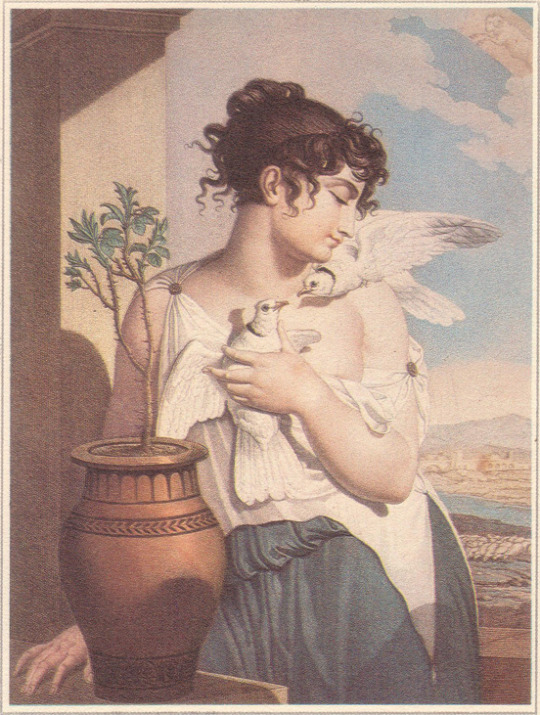

Le calendrier républicain, adopté pendant la Révolution française, était une tentative de rompre avec le passé monarchique et catholique en instaurant un système de mesure du temps basé sur les valeurs républicaines et agricoles. Chaque jour du calendrier républicain était dédié à une plante, un animal, un outil ou un événement symbolique, reflétant ainsi les idéaux de la Révolution.
Le mois de Germinal dans le calendrier républicain français représente le renouveau et la vitalité de la nature au printemps. Du 20 mars au 19 avril, Germinal est le mois où la terre se réveille de son sommeil hivernal, où les bourgeons éclosent et où les premières fleurs colorent les paysages. Il incarne le début de la saison des semailles et le travail de la terre, symbolisant ainsi l'espoir et la promesse d'une nouvelle récolte. Germinal rappelle également les idéaux républicains de liberté, d'égalité et de fraternité, en invitant chacun à contribuer à l'essor de la société et à cultiver un avenir meilleur.
La journée du 22 Germinal dans le calendrier républicain français est dédiée à la laitue romaine. Cette journée offre une occasion idéale pour découvrir et apprécier cette délicieuse variété de laitue, qui est une composante importante de nombreuses salades et plats dans la cuisine française.
Originaire du bassin méditerranéen, la laitue romaine se distingue par ses feuilles allongées et croquantes, qui offrent une texture unique et un goût délicatement sucré. Elle est souvent utilisée comme base pour les salades César classiques et apporte une fraîcheur inégalée à de nombreux plats.
Cultiver de la laitue romaine est relativement facile, car elle préfère les sols riches en nutriments et bien drainés ainsi qu'une exposition ensoleillée. Les jardiniers peuvent semer les graines directement dans le sol ou commencer par des plants pré-germés pour une récolte plus rapide.
En plus de son goût délicieux, la laitue romaine est également une source précieuse de nutriments essentiels. Elle est riche en fibres alimentaires, en vitamines (notamment les vitamines A, C et K) ainsi qu'en minéraux tels que le potassium et le calcium. En incorporant la laitue romaine dans votre alimentation, vous pouvez donc contribuer à maintenir une bonne santé digestive, renforcer votre système immunitaire et favoriser la santé osseuse.
En fin de compte, la journée du 22 Germinal est une occasion parfaite pour célébrer la laitue romaine et tout ce qu'elle apporte à notre alimentation et à notre bien-être. Que vous soyez un amateur de salades ou simplement curieux de découvrir de nouveaux ingrédients, prenez le temps de savourer et d'apprécier cette délicieuse variété de laitue lors de cette journée spéciale dans le calendrier républicain français.
***
The Republican calendar, adopted during the French Revolution, was an attempt to break away from the monarchic and Catholic past by establishing a system of time measurement based on republican and agricultural values. Each day of the Republican calendar was dedicated to a plant, an animal, a tool, or a symbolic event, thus reflecting the ideals of the Revolution.
The month of Germinal in the French Republican calendar represents the renewal and vitality of nature in spring. From March 20 to April 19, Germinal is the month when the earth awakens from its winter slumber, when buds burst open, and the first flowers color the landscapes. It embodies the beginning of the sowing season and the work of the land, symbolizing hope and the promise of a new harvest. Germinal also recalls the republican ideals of liberty, equality, and fraternity, inviting everyone to contribute to the advancement of society and cultivate a better future.
The 22nd of Germinal in the French Republican calendar is dedicated to Romaine lettuce, also known as cos lettuce or romaine lettuce. This day provides an ideal opportunity to discover and appreciate this delicious variety of lettuce, which is an important component of many salads and dishes in French cuisine.
Originating from the Mediterranean basin, Romaine lettuce is distinguished by its elongated, crisp leaves, which offer a unique texture and a delicately sweet taste. It is often used as a base for classic Caesar salads and brings unparalleled freshness to many dishes.
Growing Romaine lettuce is relatively easy, as it prefers nutrient-rich, well-drained soil and sunny exposure. Gardeners can sow the seeds directly into the ground or start with pre-germinated seedlings for a quicker harvest.
In addition to its delicious taste, Romaine lettuce is also a valuable source of essential nutrients. It is rich in dietary fiber, vitamins (including vitamins A, C, and K), and minerals such as potassium and calcium. By incorporating Romaine lettuce into your diet, you can contribute to maintaining good digestive health, strengthening your immune system, and promoting bone health.
Ultimately, the 22nd of Germinal is a perfect opportunity to celebrate Romaine lettuce and all it brings to our diet and well-being. Whether you're a salad lover or simply curious to discover new ingredients, take the time to savor and appreciate this delicious variety of lettuce on this special day in the French Republican calendar.
#calendrier#calendrier républicain#calendrier républicain français#calendrier révolutionnaire#calendrier révolutionnaire français#france#français#révolution#french revolution#french#revolutionary#révolutionnaires#révolution française#nature#laitue#germinal
9 notes
·
View notes
Text
Primidi 21 Germinal an CCXXXII
(Mardi 9 avril 2024 / Tuesday, April 9th, 2024)
🇨🇵 Texte en français et en anglais / Text in French and English 🇬🇧/🇺🇲
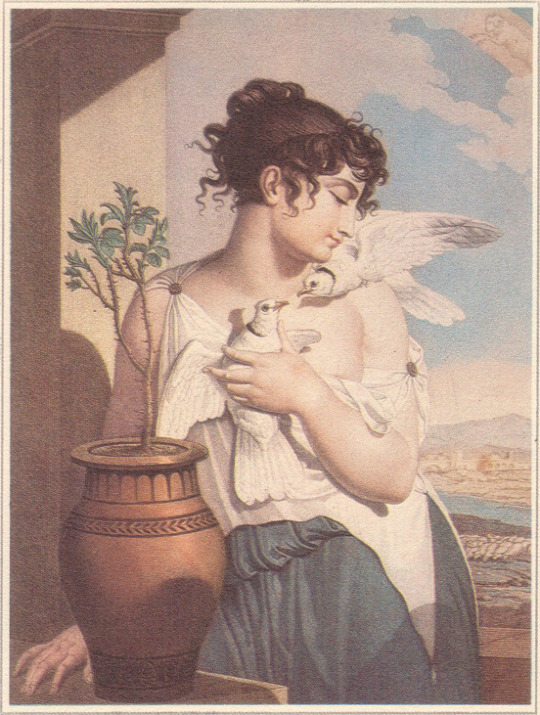
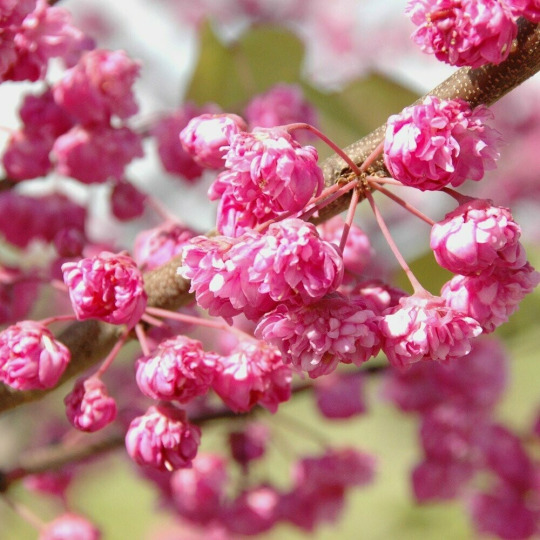
Le calendrier républicain, adopté pendant la Révolution française, était une tentative de rompre avec le passé monarchique et catholique en instaurant un système de mesure du temps basé sur les valeurs républicaines et agricoles. Chaque jour du calendrier républicain était dédié à une plante, un animal, un outil ou un événement symbolique, reflétant ainsi les idéaux de la Révolution.
Le mois de Germinal dans le calendrier républicain français représente le renouveau et la vitalité de la nature au printemps. Du 20 mars au 19 avril, Germinal est le mois où la terre se réveille de son sommeil hivernal, où les bourgeons éclosent et où les premières fleurs colorent les paysages. Il incarne le début de la saison des semailles et le travail de la terre, symbolisant ainsi l'espoir et la promesse d'une nouvelle récolte. Germinal rappelle également les idéaux républicains de liberté, d'égalité et de fraternité, en invitant chacun à contribuer à l'essor de la société et à cultiver un avenir meilleur.
Le 21 Germinal dans le calendrier républicain français est dédié au gainier, un arbre précieux pour sa magnifique floraison printanière et ses belles fleurs roses intenses. Le plus célèbre est l'arbre de Judée ou Cercis siliquastrum, originaire d'Asie et d'Afrique, appartenant à la famille des Fabaceae.
Cette journée offre l'occasion d'explorer les caractéristiques remarquables du gainier, en mettant particulièrement l'accent sur ses fleurs roses éclatantes qui ornent les paysages au printemps. La floraison du gainier est un spectacle saisissant, annonçant l'arrivée de la saison printanière et attirant les pollinisateurs tels que les abeilles et les papillons.
Outre sa beauté esthétique, le gainier possède également des vertus écologiques importantes. Ses fleurs fournissent une source de nourriture précieuse pour de nombreux insectes, contribuant ainsi à la biodiversité locale. De plus, cet arbre est capable de fixer l'azote dans le sol, améliorant ainsi sa fertilité et favorisant la croissance d'autres plantes.
La journée du 21 Germinal est donc l'occasion idéale pour célébrer la splendeur de la floraison du gainier et pour sensibiliser à son rôle crucial dans l'écosystème. En appréciant la beauté de ses fleurs roses intenses, notamment celles de l'arbre de Judée, nous renforçons notre lien avec la nature et nous nous engageons à protéger ces trésors botaniques pour les générations futures.
***
The Republican calendar, adopted during the French Revolution, was an attempt to break away from the monarchic and Catholic past by establishing a system of time measurement based on republican and agricultural values. Each day of the Republican calendar was dedicated to a plant, an animal, a tool, or a symbolic event, thus reflecting the ideals of the Revolution.
The month of Germinal in the French Republican calendar represents the renewal and vitality of nature in spring. From March 20 to April 19, Germinal is the month when the earth awakens from its winter slumber, when buds burst open, and the first flowers color the landscapes. It embodies the beginning of the sowing season and the work of the land, symbolizing hope and the promise of a new harvest. Germinal also recalls the republican ideals of liberty, equality, and fraternity, inviting everyone to contribute to the advancement of society and cultivate a better future.
The 21st Germinal in the French Republican calendar is dedicated to the Judas tree, a valuable tree for its magnificent spring bloom and its beautiful intense pink flowers. The most famous is the Judas tree or Cercis siliquastrum, native to Asia and Africa, belonging to the Fabaceae family.
This day offers the opportunity to explore the remarkable characteristics of the Judas tree, particularly emphasizing its vibrant pink flowers that adorn landscapes in spring. The Judas tree's flowering is a breathtaking sight, heralding the arrival of the spring season and attracting pollinators such as bees and butterflies.
In addition to its aesthetic beauty, the Judas tree also has important ecological virtues. Its flowers provide a precious source of food for many insects, thus contributing to local biodiversity. Furthermore, this tree is capable of fixing nitrogen in the soil, improving its fertility and promoting the growth of other plants.
The 21st Germinal is therefore the ideal opportunity to celebrate the splendor of the Judas tree's bloom and to raise awareness of its crucial role in the ecosystem. By appreciating the beauty of its intense pink flowers, especially those of the Judas tree, we strengthen our connection with nature and commit to protecting these botanical treasures for future generations.
#calendrier#calendrier républicain#calendrier républicain français#calendrier révolutionnaire#calendrier révolutionnaire français#france#français#révolution#french revolution#french#germinal#francais#french calendar#révolution française#revolutionary#révolutionnaires#arbre#tree#nature#judas#Judas tree#gainier
3 notes
·
View notes
Text
Décadi 20 Germinal an CCXXXII
(Lundi 8 avril 2024 / Monday, April 8th, 2024)
🇨🇵 Texte en français et en anglais / Text in French and English 🇬🇧/🇺🇲

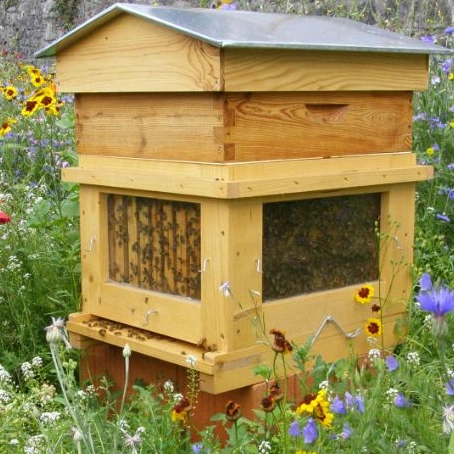
Le calendrier républicain, adopté pendant la Révolution française, était une tentative de rompre avec le passé monarchique et catholique en instaurant un système de mesure du temps basé sur les valeurs républicaines et agricoles. Chaque jour du calendrier républicain était dédié à une plante, un animal, un outil ou un événement symbolique, reflétant ainsi les idéaux de la Révolution.
Le mois de Germinal dans le calendrier républicain français représente le renouveau et la vitalité de la nature au printemps. Du 20 mars au 19 avril, Germinal est le mois où la terre se réveille de son sommeil hivernal, où les bourgeons éclosent et où les premières fleurs colorent les paysages. Il incarne le début de la saison des semailles et le travail de la terre, symbolisant ainsi l'espoir et la promesse d'une nouvelle récolte. Germinal rappelle également les idéaux républicains de liberté, d'égalité et de fraternité, en invitant chacun à contribuer à l'essor de la société et à cultiver un avenir meilleur.
La journée du 20 Germinal dans le calendrier républicain français était dédiée à la ruche, mettant en lumière l'importance de cet habitat pour les abeilles et son rôle essentiel dans notre écosystème. Pour comprendre la signification de cette journée, explorons le monde fascinant de la ruche et son impact sur notre planète.
La ruche est bien plus qu'un simple nid pour les abeilles. C'est un lieu de travail et de vie où les abeilles passent la majeure partie de leur existence. À l'intérieur de la ruche, chaque abeille a un rôle spécifique à jouer, qu'il s'agisse de la collecte de nectar et de pollen, de la fabrication de la cire pour construire les alvéoles ou de la garde et de la protection de la colonie.
La ruche est également le lieu de production du miel, une substance délicieuse et nutritive utilisée depuis des millénaires comme édulcorant naturel et remède médicinal. Les abeilles récoltent le nectar des fleurs et le transforment en miel à l'intérieur de la ruche, grâce à un processus complexe de régurgitation et de fermentation.
Cependant, les ruches et les abeilles sont confrontées à de nombreux défis, notamment la perte d'habitat, l'utilisation de pesticides et les maladies. La journée du 20 Germinal était donc l'occasion de sensibiliser à la protection des ruches et des abeilles, ainsi qu'à l'adoption de pratiques agricoles durables qui préservent la santé des pollinisateurs.
En célébrant la ruche le 20 Germinal, le calendrier républicain rappelait l'importance vitale de cet habitat pour les abeilles et pour notre environnement dans son ensemble. Il nous incite également à prendre conscience de notre responsabilité collective dans la préservation de ces précieuses structures et de leur rôle indispensable dans la nature.
***
The Republican calendar, adopted during the French Revolution, was an attempt to break away from the monarchic and Catholic past by establishing a system of time measurement based on republican and agricultural values. Each day of the Republican calendar was dedicated to a plant, an animal, a tool, or a symbolic event, thus reflecting the ideals of the Revolution.
The month of Germinal in the French Republican calendar represents the renewal and vitality of nature in spring. From March 20 to April 19, Germinal is the month when the earth awakens from its winter slumber, when buds burst open, and the first flowers color the landscapes. It embodies the beginning of the sowing season and the work of the land, symbolizing hope and the promise of a new harvest. Germinal also recalls the republican ideals of liberty, equality, and fraternity, inviting everyone to contribute to the advancement of society and cultivate a better future.
The 20th day of Germinal in the French Republican calendar was dedicated to the beehive, highlighting the importance of this habitat for bees and its essential role in our ecosystem. To understand the significance of this day, let's explore the fascinating world of the beehive and its impact on our planet.
The beehive is more than just a nest for bees. It is a place of work and life where bees spend most of their existence. Inside the hive, each bee has a specific role to play, whether it's collecting nectar and pollen, producing wax to build the honeycomb, or guarding and protecting the colony.
The beehive is also the site of honey production, a delicious and nutritious substance used for millennia as a natural sweetener and medicinal remedy. Bees gather nectar from flowers and transform it into honey inside the hive, through a complex process of regurgitation and fermentation.
However, beehives and bees face numerous challenges, including habitat loss, pesticide use, and diseases. The 20th day of Germinal was therefore an opportunity to raise awareness about the protection of beehives and bees, as well as the adoption of sustainable agricultural practices that preserve the health of pollinators.
By celebrating the beehive on the 20th day of Germinal, the Republican calendar reminded us of the vital importance of this habitat for bees and for our environment as a whole. It also encourages us to recognize our collective responsibility in preserving these valuable structures and their indispensable role in nature.
#calendrier#calendrier républicain#calendrier républicain français#calendrier révolutionnaire#calendrier révolutionnaire français#france#français#révolution#french revolution#french#révolutionnaires#revolutionary#francais#french calendar#révolution française#abeilles#bees#ruche#germinal#beehive
3 notes
·
View notes
Text
Nonidi 19 Germinal an CCXXXII
(Dimanche 7 avril 2024 / Sunday, April 7th, 2024)
🇨🇵 Texte en français et en anglais / Text in French and English 🇬🇧/🇺🇲
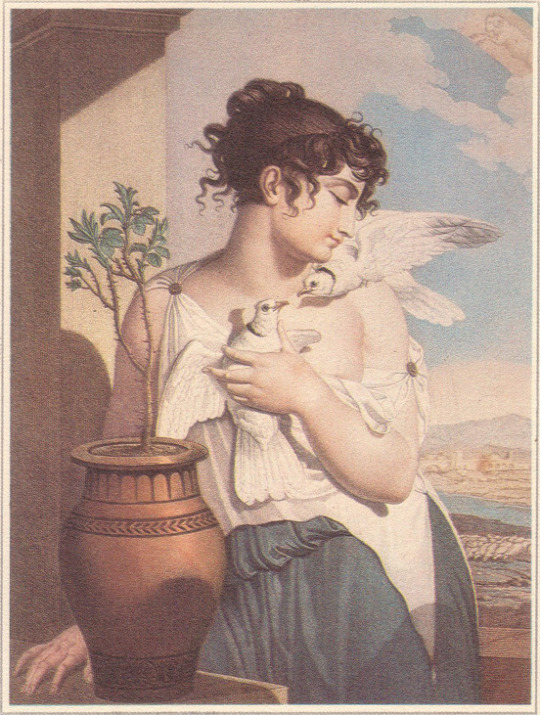

Le calendrier républicain, adopté pendant la Révolution française, était une tentative de rompre avec le passé monarchique et catholique en instaurant un système de mesure du temps basé sur les valeurs républicaines et agricoles. Chaque jour du calendrier républicain était dédié à une plante, un animal, un outil ou un événement symbolique, reflétant ainsi les idéaux de la Révolution.
Le mois de Germinal dans le calendrier républicain français représente le renouveau et la vitalité de la nature au printemps. Du 20 mars au 19 avril, Germinal est le mois où la terre se réveille de son sommeil hivernal, où les bourgeons éclosent et où les premières fleurs colorent les paysages. Il incarne le début de la saison des semailles et le travail de la terre, symbolisant ainsi l'espoir et la promesse d'une nouvelle récolte. Germinal rappelle également les idéaux républicains de liberté, d'égalité et de fraternité, en invitant chacun à contribuer à l'essor de la société et à cultiver un avenir meilleur.
La journée du 19 germinal dans le calendrier républicain français était une journée dédiée au radis, un légume qui a une grande importance dans l'alimentation et dans l'histoire de l'agriculture. Pour comprendre l'importance de cette journée, il est essentiel de se plonger dans le contexte historique et agricole de la France à l'époque de la Révolution.
Le radis, légume emblématique du printemps, était donc mis à l'honneur le 19 germinal. Ce choix n'était pas anodin, car le radis était déjà largement cultivé en France à l'époque de la Révolution. Sa culture était relativement simple, ce qui en faisait un aliment populaire aussi bien auprès des paysans que des citadins.
Les radis sont des légumes racines riches en nutriments essentiels. Ils sont une excellente source de vitamine C, qui renforce le système immunitaire, favorise la santé de la peau et aide à la cicatrisation des plaies. De plus, les radis sont faibles en calories et riches en fibres, ce qui les rend bénéfiques pour la digestion et la gestion du poids. Ils contiennent également des composés phytochimiques comme les flavonoïdes et les caroténoïdes, qui ont des propriétés antioxydantes et anti-inflammatoires, contribuant ainsi à réduire le risque de maladies chroniques telles que les maladies cardiovasculaires et le cancer. En résumé, les radis sont non seulement délicieux mais aussi un ajout nutritif à tout régime alimentaire équilibré.
En mettant en avant le radis, la journée du 19 germinal visait à sensibiliser la population à l'importance de l'agriculture et de l'autosuffisance alimentaire. En effet, pendant la Révolution française, l'accès à la nourriture était une préoccupation majeure pour de nombreux Français, en particulier pour les classes populaires. La valorisation du radis était donc également un moyen de promouvoir une alimentation saine et accessible à tous.
***
The Republican calendar, adopted during the French Revolution, was an attempt to break away from the monarchic and Catholic past by establishing a system of time measurement based on republican and agricultural values. Each day of the Republican calendar was dedicated to a plant, an animal, a tool, or a symbolic event, thus reflecting the ideals of the Revolution.
The month of Germinal in the French Republican calendar represents the renewal and vitality of nature in spring. From March 20 to April 19, Germinal is the month when the earth awakens from its winter slumber, when buds burst open, and the first flowers color the landscapes. It embodies the beginning of the sowing season and the work of the land, symbolizing hope and the promise of a new harvest. Germinal also recalls the republican ideals of liberty, equality, and fraternity, inviting everyone to contribute to the advancement of society and cultivate a better future.
The 19th day of the month Germinal in the French Republican calendar was dedicated to the radish, a vegetable of significant importance in both nutrition and agricultural history. To understand the significance of this day, it is crucial to delve into the historical and agricultural context of France during the Revolution.
The radish, an emblematic spring vegetable, was thus honored on the 19th day of Germinal. This choice was significant, as radishes were already widely cultivated in France during the Revolution. Their cultivation was relatively simple, making them a popular food among both peasants and city dwellers.
Radishes are root vegetables rich in essential nutrients. They are an excellent source of vitamin C, which boosts the immune system, promotes skin health, and aids in wound healing. Additionally, radishes are low in calories and high in fiber, making them beneficial for digestion and weight management. They also contain phytochemicals such as flavonoids and carotenoids, which have antioxidant and anti-inflammatory properties, thus helping to reduce the risk of chronic diseases such as cardiovascular diseases and cancer. In summary, radishes are not only delicious but also a nutritious addition to any balanced diet.
By highlighting the radish, the 19th day of Germinal aimed to raise awareness about the importance of agriculture and food self-sufficiency. During the French Revolution, access to food was a major concern for many French people, particularly among the lower classes. The valorization of the radish was therefore also a means of promoting healthy and accessible food for all.
#calendrier#calendrier républicain#calendrier républicain français#calendrier révolutionnaire#calendrier révolutionnaire français#france#français#révolution#french revolution#french#francais#french calendar#radis#radishes#germinal#agriculture#révolution française#révolutionnaires#revolutionary
1 note
·
View note
Text
Septidi 17 Germinal an CCXXXII
(Vendredi 5 avril 2024 / Friday, April 5th, 2024)
🇨🇵 Texte en français et en anglais / Text in French and English 🇬🇧/🇺🇲


Le calendrier républicain, adopté pendant la Révolution française, était une tentative de rompre avec le passé monarchique et catholique en instaurant un système de mesure du temps basé sur les valeurs républicaines et agricoles. Chaque jour du calendrier républicain était dédié à une plante, un animal, un outil ou un événement symbolique, reflétant ainsi les idéaux de la Révolution.
Le mois de Germinal dans le calendrier républicain français représente le renouveau et la vitalité de la nature au printemps. Du 20 mars au 19 avril, Germinal est le mois où la terre se réveille de son sommeil hivernal, où les bourgeons éclosent et où les premières fleurs colorent les paysages. Il incarne le début de la saison des semailles et le travail de la terre, symbolisant ainsi l'espoir et la promesse d'une nouvelle récolte. Germinal rappelle également les idéaux républicains de liberté, d'égalité et de fraternité, en invitant chacun à contribuer à l'essor de la société et à cultiver un avenir meilleur.
La journée du 17 Germinal dans le calendrier républicain français est dédiée au mélèze, un arbre emblématique de la nature française. Cette date correspond généralement au début du printemps, une période où la nature se réveille et où les arbres commencent à bourgeonner.
Le mélèze, de son nom scientifique Larix decidua, est un conifère qui se distingue par sa particularité à perdre ses aiguilles en hiver, contrairement à la plupart des autres conifères qui conservent leur feuillage toute l'année. C'est donc un symbole de renouveau et de régénération.
Cette journée est l'occasion de sensibiliser les citoyens à l'importance de la préservation de la biodiversité et de l'environnement. En effet, les forêts de mélèzes jouent un rôle crucial dans l'écosystème en fournissant un habitat à de nombreuses espèces animales et végétales, en régulant le climat local et en contribuant à la qualité de l'air.
Pour célébrer cette journée, différentes activités pédagogiques et écologiques peuvent être organisées. Par exemple, des sorties en forêt pour observer les mélèzes et découvrir leur habitat naturel, des ateliers de sensibilisation à la reforestation et à la gestion durable des forêts, ou encore des séances de plantation d'arbres dans des espaces verts urbains.
En encourageant la population à s'impliquer dans la préservation des mélèzes et de leur habitat, la journée du 17 Germinal contribue à promouvoir un mode de vie plus respectueux de l'environnement et à préserver la richesse naturelle de la France pour les générations futures.
***
The Republican calendar, adopted during the French Revolution, was an attempt to break away from the monarchic and Catholic past by establishing a system of time measurement based on republican and agricultural values. Each day of the Republican calendar was dedicated to a plant, an animal, a tool, or a symbolic event, thus reflecting the ideals of the Revolution.
The month of Germinal in the French Republican calendar represents the renewal and vitality of nature in spring. From March 20 to April 19, Germinal is the month when the earth awakens from its winter slumber, when buds burst open, and the first flowers color the landscapes. It embodies the beginning of the sowing season and the work of the land, symbolizing hope and the promise of a new harvest. Germinal also recalls the republican ideals of liberty, equality, and fraternity, inviting everyone to contribute to the advancement of society and cultivate a better future.
The day of 17 Germinal in the French Republican calendar is dedicated to the larch, a emblematic tree of the French nature. This date generally corresponds to the beginning of spring, a period when nature awakens and trees begin to bud.
The larch, scientifically known as Larix decidua, is a conifer that stands out for its peculiar trait of shedding its needles in winter, unlike most other conifers that retain their foliage throughout the year. Therefore, it symbolizes renewal and regeneration.
This day is an opportunity to raise awareness among citizens about the importance of preserving biodiversity and the environment. Indeed, larch forests play a crucial role in the ecosystem by providing habitat for numerous animal and plant species, regulating the local climate, and contributing to air quality.
To celebrate this day, various educational and ecological activities can be organized. For example, forest outings to observe larches and discover their natural habitat, workshops to raise awareness about reforestation and sustainable forest management, or tree planting sessions in urban green spaces.
By encouraging the population to get involved in the preservation of larches and their habitat, the day of 17 Germinal contributes to promoting a more environmentally friendly way of life and preserving France's natural richness for future generations.
#calendrier#calendrier républicain#calendrier républicain français#calendrier révolutionnaire#calendrier révolutionnaire français#france#français#révolution#french revolution#french#francais#french calendar#révolutionnaires#revolutionary#arbres#trees#nature#Germinal
3 notes
·
View notes
Text
Sextidi 16 Germinal an CCXXXII
(Jeudi 4 avril 2024 / Thursday, April 4th, 2024)
🇨🇵 Texte en français et en anglais / Text in French and English 🇬🇧/🇺🇲

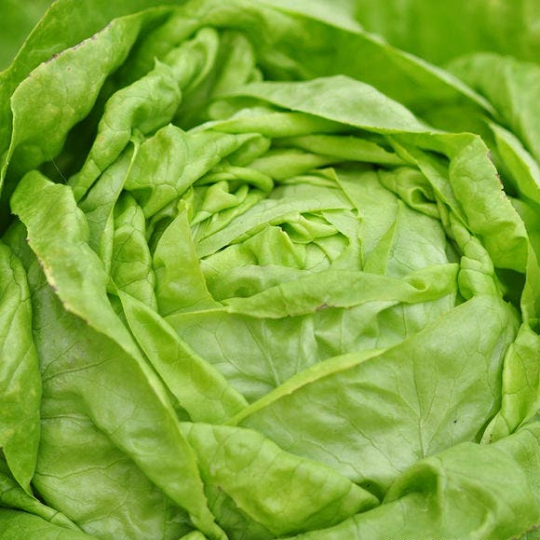
Le calendrier républicain, adopté pendant la Révolution française, était une tentative de rompre avec le passé monarchique et catholique en instaurant un système de mesure du temps basé sur les valeurs républicaines et agricoles. Chaque jour du calendrier républicain était dédié à une plante, un animal, un outil ou un événement symbolique, reflétant ainsi les idéaux de la Révolution.
Le mois de Germinal dans le calendrier républicain français représente le renouveau et la vitalité de la nature au printemps. Du 20 mars au 19 avril, Germinal est le mois où la terre se réveille de son sommeil hivernal, où les bourgeons éclosent et où les premières fleurs colorent les paysages. Il incarne le début de la saison des semailles et le travail de la terre, symbolisant ainsi l'espoir et la promesse d'une nouvelle récolte. Germinal rappelle également les idéaux républicains de liberté, d'égalité et de fraternité, en invitant chacun à contribuer à l'essor de la société et à cultiver un avenir meilleur.
Aujourd'hui, dans le calendrier républicain français, nous célébrons la journée de la Laitue. Ce jour est dédié à mettre en lumière l'importance de la laitue, une plante à feuilles vertes largement cultivée et appréciée pour ses qualités nutritionnelles et gustatives.
La laitue (Lactuca sativa) est une plante herbacée de la famille des Astéracées. Reconnaissable par ses feuilles vertes, croquantes et juteuses, la laitue est un ingrédient essentiel dans de nombreuses cuisines à travers le monde. Cultivée depuis l'Antiquité, elle est appréciée pour sa fraîcheur et sa polyvalence culinaire.
La laitue est non seulement délicieuse, mais elle est également riche en nutriments essentiels. Elle est une excellente source de vitamines et de minéraux, tels que la vitamine K, la vitamine A, le folate et le potassium. De plus, elle est faible en calories et riche en fibres, ce qui en fait un aliment idéal pour soutenir une alimentation saine et équilibrée.
En cette journée spéciale de la Laitue, nous sommes invités à célébrer ce légume frais et nutritif. C'est également une occasion parfaite pour en apprendre davantage sur les différentes variétés de laitue, leurs méthodes de culture et leurs bienfaits pour la santé.
En conclusion, la journée de la Laitue le 16 Germinal est une occasion idéale pour apprécier ce légume délicieux et nourrissant. Profitez de cette journée pour explorer les merveilles de la laitue et pour partager vos découvertes avec vos proches.
***
The Republican calendar, adopted during the French Revolution, was an attempt to break away from the monarchic and Catholic past by establishing a system of time measurement based on republican and agricultural values. Each day of the Republican calendar was dedicated to a plant, an animal, a tool, or a symbolic event, thus reflecting the ideals of the Revolution.
The month of Germinal in the French Republican calendar represents the renewal and vitality of nature in spring. From March 20 to April 19, Germinal is the month when the earth awakens from its winter slumber, when buds burst open, and the first flowers color the landscapes. It embodies the beginning of the sowing season and the work of the land, symbolizing hope and the promise of a new harvest. Germinal also recalls the republican ideals of liberty, equality, and fraternity, inviting everyone to contribute to the advancement of society and cultivate a better future.
Today, in the French republican calendar, we celebrate Lettuce Day, marked on 16 Germinal. This day is dedicated to highlighting the importance of lettuce, a green leafy plant widely cultivated and appreciated for its nutritional and gustatory qualities.
Lettuce (Lactuca sativa) is a herbaceous plant of the Asteraceae family. Recognizable by its green, crunchy, and juicy leaves, lettuce is an essential ingredient in many cuisines around the world. Cultivated since antiquity, it is appreciated for its freshness and culinary versatility.
Lettuce is not only delicious but also rich in essential nutrients. It is an excellent source of vitamins and minerals, such as vitamin K, vitamin A, folate, and potassium. Furthermore, it is low in calories and rich in fiber, making it an ideal food to support a healthy and balanced diet.
On this special Lettuce Day, we are invited to celebrate this fresh and nutritious vegetable. It is also a perfect opportunity to learn more about the different varieties of lettuce, their cultivation methods, and their health benefits.
In conclusion, Lettuce Day on 16 Germinal is an ideal opportunity to appreciate this delicious and nourishing vegetable. Enjoy this day to explore the wonders of lettuce and share your discoveries with your loved ones.
#calendrier#calendrier républicain#calendrier républicain français#calendrier révolutionnaire#calendrier révolutionnaire français#france#français#révolution#french revolution#french#révolution française#francais#french calendar#laitue#lettuce#agriculture#nature#germinal
2 notes
·
View notes
Text
Quintidi 15 Germinal an CCXXXII
(Mercredi 3 avril 2024 / Wenesday, April 3rd, 2024)
🇨🇵 Texte en français et en anglais / Text in French and English 🇬🇧/🇺🇲


Le calendrier républicain, adopté pendant la Révolution française, était une tentative de rompre avec le passé monarchique et catholique en instaurant un système de mesure du temps basé sur les valeurs républicaines et agricoles. Chaque jour du calendrier républicain était dédié à une plante, un animal, un outil ou un événement symbolique, reflétant ainsi les idéaux de la Révolution.
Le mois de Germinal dans le calendrier républicain français représente le renouveau et la vitalité de la nature au printemps. Du 20 mars au 19 avril, Germinal est le mois où la terre se réveille de son sommeil hivernal, où les bourgeons éclosent et où les premières fleurs colorent les paysages. Il incarne le début de la saison des semailles et le travail de la terre, symbolisant ainsi l'espoir et la promesse d'une nouvelle récolte. Germinal rappelle également les idéaux républicains de liberté, d'égalité et de fraternité, en invitant chacun à contribuer à l'essor de la société et à cultiver un avenir meilleur.
Le 15 Germinal dans le calendrier républicain français est dédié à l'abeille, une journée qui célèbre l'importance de cet insecte pour l'écosystème et l'agriculture. Cette journée met en lumière le rôle vital des abeilles dans la pollinisation des plantes, un processus essentiel à la reproduction de nombreuses espèces végétales, y compris de nombreuses cultures alimentaires.
L'abeille, en tant que pollinisatrice, joue un rôle crucial dans la production de fruits, légumes et graines. Sans les abeilles, de nombreuses plantes ne pourraient pas se reproduire, ce qui aurait un impact dévastateur sur la biodiversité et sur l'approvisionnement alimentaire humain.
Cette journée est également l'occasion de sensibiliser le public aux menaces qui pèsent sur les abeilles, telles que la perte d'habitat, l'utilisation de pesticides et les maladies. La diminution des populations d'abeilles dans de nombreuses régions du monde est une préoccupation majeure, car elle pourrait avoir des répercussions graves sur la sécurité alimentaire mondiale.
Pour célébrer la journée du 15 Germinal, les gens sont encouragés à prendre des mesures pour protéger les abeilles et leur habitat. Cela peut inclure la plantation de fleurs mellifères dans les jardins, l'installation de ruches dans les zones appropriées, et le soutien aux initiatives de préservation de la biodiversité.
En reconnaissant l'importance des abeilles et en prenant des mesures pour les protéger, nous contribuons à préserver l'équilibre fragile de notre écosystème et à assurer un avenir durable pour les générations futures.
***
The Republican calendar, adopted during the French Revolution, was an attempt to break away from the monarchic and Catholic past by establishing a system of time measurement based on republican and agricultural values. Each day of the Republican calendar was dedicated to a plant, an animal, a tool, or a symbolic event, thus reflecting the ideals of the Revolution.
The month of Germinal in the French Republican calendar represents the renewal and vitality of nature in spring. From March 20 to April 19, Germinal is the month when the earth awakens from its winter slumber, when buds burst open, and the first flowers color the landscapes. It embodies the beginning of the sowing season and the work of the land, symbolizing hope and the promise of a new harvest. Germinal also recalls the republican ideals of liberty, equality, and fraternity, inviting everyone to contribute to the advancement of society and cultivate a better future.
On the French Republican calendar, the 15th of Germinal is dedicated to the bee, a day that celebrates the importance of this insect for the ecosystem and agriculture. This day highlights the vital role of bees in pollinating plants, an essential process for the reproduction of many plant species, including numerous food crops.
Bees, as pollinators, play a crucial role in the production of fruits, vegetables, and seeds. Without bees, many plants would not be able to reproduce, which would have a devastating impact on biodiversity and human food supply.
This day is also an opportunity to raise awareness about the threats facing bees, such as habitat loss, pesticide use, and diseases. The decline in bee populations in many regions of the world is a major concern, as it could have serious repercussions for global food security.
To celebrate the 15th of Germinal, people are encouraged to take action to protect bees and their habitat. This can include planting bee-friendly flowers in gardens, installing beehives in appropriate areas, and supporting biodiversity conservation initiatives.
By recognizing the importance of bees and taking steps to protect them, we contribute to preserving the delicate balance of our ecosystem and ensuring a sustainable future for future generations.
#calendrier#calendrier républicain#calendrier républicain français#calendrier révolutionnaire#calendrier révolutionnaire français#france#français#révolution#french revolution#french#germinal#abeille#bee#arbres#fruits#révolution française#francais#french calendar#nature
2 notes
·
View notes
Text
Quartidi 14 Germinal an CCXXXII
(Mardi 2 avril 2024 / Tuesday, April 2nd, 2024)
🇨🇵 Texte en français et en anglais / Text in French and English 🇬🇧/🇺🇲
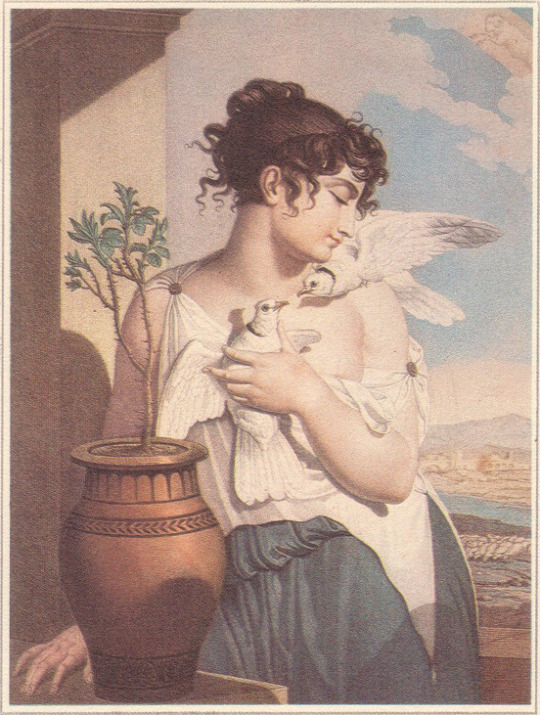

Le calendrier républicain, adopté pendant la Révolution française, était une tentative de rompre avec le passé monarchique et catholique en instaurant un système de mesure du temps basé sur les valeurs républicaines et agricoles. Chaque jour du calendrier républicain était dédié à une plante, un animal, un outil ou un événement symbolique, reflétant ainsi les idéaux de la Révolution.Le mois de Germinal dans le calendrier républicain français représente le renouveau et la vitalité de la nature au printemps. Du 20 mars au 19 avril, Germinal est le mois où la terre se réveille de son sommeil hivernal, où les bourgeons éclosent et où les premières fleurs colorent les paysages. Il incarne le début de la saison des semailles et le travail de la terre, symbolisant ainsi l'espoir et la promesse d'une nouvelle récolte. Germinal rappelle également les idéaux républicains de liberté, d'égalité et de fraternité, en invitant chacun à contribuer à l'essor de la société et à cultiver un avenir meilleur.
Le 14 Germinal est dédié à la célébration du Hêtre.
Le Hêtre (Fagus sylvatica) est un arbre emblématique de la flore européenne. Reconnaissable par son écorce lisse et grise, ses feuilles dentelées vert foncé en été et son bois robuste, le Hêtre est largement répandu dans les forêts tempérées d'Europe. Il est souvent associé à des qualités de force, de résilience et de longévité.
Ce jour du 14 Germinal symbolisait l'importance de la nature et de son renouveau, mettant en lumière l'arbre Hêtre en tant que symbole de la force de la nature.
La journée du 14 Germinal était l'occasion de célébrer la beauté et la grandeur de la nature, ainsi que les enseignements précieux que nous pouvons tirer de l'arbre Hêtre. Les républicains étaient invités à réfléchir sur les valeurs de résilience, de croissance durable et d'harmonie avec la nature, tout en honorant cet arbre majestueux.
***
The Republican calendar, adopted during the French Revolution, was an attempt to break away from the monarchic and Catholic past by establishing a system of time measurement based on republican and agricultural values. Each day of the Republican calendar was dedicated to a plant, an animal, a tool, or a symbolic event, thus reflecting the ideals of the Revolution.
The month of Germinal in the French Republican calendar represents the renewal and vitality of nature in spring. From March 20 to April 19, Germinal is the month when the earth awakens from its winter slumber, when buds burst open, and the first flowers color the landscapes. It embodies the beginning of the sowing season and the work of the land, symbolizing hope and the promise of a new harvest. Germinal also recalls the republican ideals of liberty, equality, and fraternity, inviting everyone to contribute to the advancement of society and cultivate a better future.
The 14th Germinal is dedicated to the celebration of the Beech tree.
The Beech (Fagus sylvatica) is an emblematic tree of the European flora. Recognizable by its smooth, gray bark, its dark green, serrated leaves in summer, and its sturdy wood, the Beech is widely spread in the temperate forests of Europe. It is often associated with qualities of strength, resilience, and longevity.
This day of the 14th Germinal symbolized the importance of nature and its renewal, highlighting the Beech tree as a symbol of the strength of nature.
The 14th Germinal was an opportunity to celebrate the beauty and grandeur of nature, as well as the valuable lessons we can learn from the Beech tree. Republicans were invited to reflect on the values of resilience, sustainable growth, and harmony with nature while honoring this majestic tree.
#calendrier#calendrier républicain#calendrier républicain français#calendrier révolutionnaire#calendrier révolutionnaire français#france#français#révolution#french revolution#french#révolution française#francais#french calendar#arbre#tree#Hêtre#beech tree#nature#révolutionnaires#revolutionary
1 note
·
View note
Text
Tridi 13 Germinal an CCXXXII
(Lundi 1er avril 2024 / Monday, April 1st, 2024)
🇨🇵 Texte en français et en anglais / Text in French and English 🇬🇧/🇺🇲

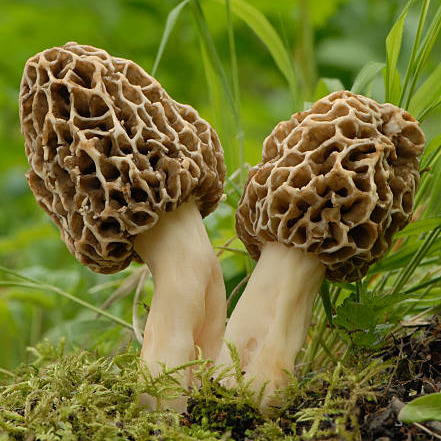
Le calendrier républicain, adopté pendant la Révolution française, était une tentative de rompre avec le passé monarchique et catholique en instaurant un système de mesure du temps basé sur les valeurs républicaines et agricoles. Chaque jour du calendrier républicain était dédié à une plante, un animal, un outil ou un événement symbolique, reflétant ainsi les idéaux de la Révolution.
Le mois de Germinal dans le calendrier républicain français représente le renouveau et la vitalité de la nature au printemps. Du 20 mars au 19 avril, Germinal est le mois où la terre se réveille de son sommeil hivernal, où les bourgeons éclosent et où les premières fleurs colorent les paysages. Il incarne le début de la saison des semailles et le travail de la terre, symbolisant ainsi l'espoir et la promesse d'une nouvelle récolte. Germinal rappelle également les idéaux républicains de liberté, d'égalité et de fraternité, en invitant chacun à contribuer à l'essor de la société et à cultiver un avenir meilleur.
La journée du 13 Germinal dans le calendrier républicain français était dédiée à la morille, un champignon particulièrement apprécié pour sa saveur délicate et sa texture unique. Originaire de nombreux endroits dans le monde, la morille se distingue par sa forme distinctive en cône ou en entonnoir, ainsi que par sa surface irrégulière et alvéolée.
Ce champignon pousse généralement au printemps, dans les bois, les prairies et les zones boisées. Il est très recherché par les gastronomes pour sa saveur unique qui ajoute une touche raffinée à de nombreux plats. Sa texture ferme et spongieuse lui confère une polyvalence culinaire, pouvant être utilisée dans des plats tels que les risottos, les sauces, les omelettes ou tout simplement sautée avec un peu de beurre et d'ail.
La morille est également appréciée pour sa richesse en nutriments. Elle est une source de protéines, de fibres, de vitamines (notamment les vitamines B et D) et de minéraux tels que le potassium, le magnésium et le phosphore. De plus, certaines recherches suggèrent que la morille pourrait avoir des propriétés antioxydantes et anti-inflammatoires bénéfiques pour la santé.
En célébrant la journée du 13 Germinal dédiée à la morille, nous mettons en lumière ce joyau de la nature et invitons chacun à découvrir et à apprécier la richesse de notre biodiversité.
***
The Republican calendar, adopted during the French Revolution, was an attempt to break away from the monarchic and Catholic past by establishing a system of time measurement based on republican and agricultural values. Each day of the Republican calendar was dedicated to a plant, an animal, a tool, or a symbolic event, thus reflecting the ideals of the Revolution.
The month of Germinal in the French Republican calendar represents the renewal and vitality of nature in spring. From March 20 to April 19, Germinal is the month when the earth awakens from its winter slumber, when buds burst open, and the first flowers color the landscapes. It embodies the beginning of the sowing season and the work of the land, symbolizing hope and the promise of a new harvest. Germinal also recalls the republican ideals of liberty, equality, and fraternity, inviting everyone to contribute to the advancement of society and cultivate a better future.
The 13th Germinal in the French Republican calendar was dedicated to the morel, a mushroom particularly prized for its delicate flavor and unique texture. Originating from various places around the world, the morel is distinguished by its distinctive cone or funnel shape, as well as its irregular, pitted surface.
This mushroom typically grows in spring, in woods, meadows, and wooded areas. It is highly sought after by gastronomes for its unique flavor that adds a refined touch to many dishes. Its firm and spongy texture lends itself well to various culinary applications, such as risottos, sauces, omelets, or simply sautéed with butter and garlic.
The morel is also valued for its nutrient richness. It is a source of protein, fiber, vitamins (including vitamins B and D), and minerals such as potassium, magnesium, and phosphorus. Furthermore, some research suggests that the morel may have antioxidant and anti-inflammatory properties beneficial for health.
By celebrating the 13th Germinal dedicated to the morel, we shine a spotlight on this natural gem and invite everyone to discover and appreciate the richness of our biodiversity.
#calendrier#calendrier républicain#calendrier républicain français#calendrier révolutionnaire#calendrier révolutionnaire français#france#français#révolution#french revolution#french calendar#révolution française#francais#french#agriculture#champignons#mushrooms#morille#revolutionary#germinal
3 notes
·
View notes
Text
Duodi 12 Germinal an CCXXXII
(Dimanche 31 mars 2024 / Sunday, March 31, 2024)
🇨🇵 Texte en français et en anglais / Text in French and English 🇬🇧/🇺🇲
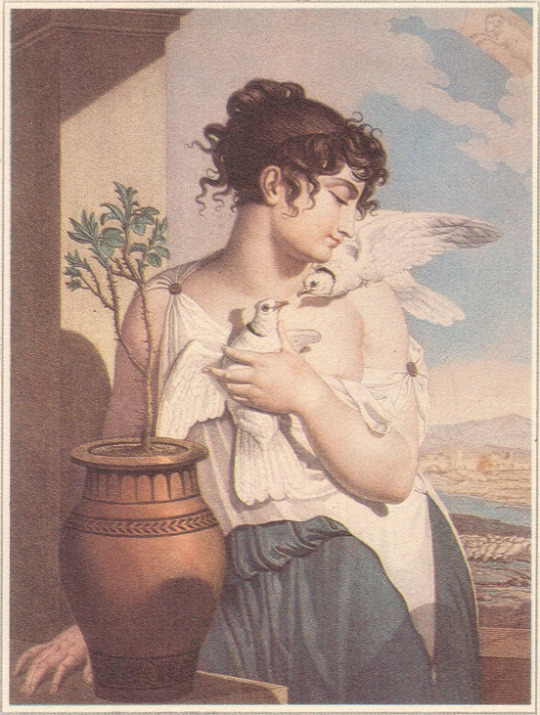
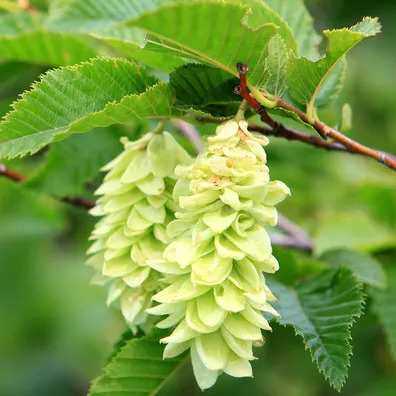
Le calendrier républicain, adopté pendant la Révolution française, était une tentative de rompre avec le passé monarchique et catholique en instaurant un système de mesure du temps basé sur les valeurs républicaines et agricoles. Chaque jour du calendrier républicain était dédié à une plante, un animal, un outil ou un événement symbolique, reflétant ainsi les idéaux de la Révolution.
Le mois de Germinal dans le calendrier républicain français représente le renouveau et la vitalité de la nature au printemps. Du 20 mars au 19 avril, Germinal est le mois où la terre se réveille de son sommeil hivernal, où les bourgeons éclosent et où les premières fleurs colorent les paysages. Il incarne le début de la saison des semailles et le travail de la terre, symbolisant ainsi l'espoir et la promesse d'une nouvelle récolte. Germinal rappelle également les idéaux républicains de liberté, d'égalité et de fraternité, en invitant chacun à contribuer à l'essor de la société et à cultiver un avenir meilleur.
La journée du 12 Germinal dans le calendrier républicain français est dédiée au charme, un arbre également connu sous le nom de charme commun. Cet arbre revêt une importance non seulement pour ses caractéristiques botaniques, mais aussi pour son symbolisme culturel et historique.
Le charme, scientifiquement connu sous le nom de Carpinus betulus, est un arbre à feuilles caduques originaire d'Europe et de certaines parties d'Asie. Il se distingue par ses feuilles denses et finement dentelées, ainsi que par son écorce cannelée distinctive, qui ressemble à du tissu musculaire, d'où son nom alternatif de « bois de muscle ». Le charme pousse généralement dans les forêts et les zones boisées, où il forme souvent des peuplements denses.
Sur le plan symbolique, le charme est associé à des qualités telles que la résistance, la longévité et la sagesse. Son bois dur et durable en a fait un matériau prisé pour la construction de meubles, d'outils et même de charpentes. En outre, le charme est souvent considéré comme un symbole de protection et de bonne fortune dans de nombreuses cultures européennes.
En plus de ses feuilles distinctives et de son écorce remarquable, le charme produit également des fleurs discrètes mais élégantes au printemps. Les fleurs du charme sont de petites grappes pendantes, apparaissant avant le feuillage complet de l'arbre. Bien que souvent peu remarquées en raison de leur petite taille et de leur couleur discrète, ces fleurs jouent un rôle essentiel dans la pollinisation et la reproduction de l'arbre. Elles attirent les insectes pollinisateurs, tels que les abeilles et les bourdons, contribuant ainsi à la biodiversité de l'écosystème forestier. Ces fleurs ajoutent une touche de délicatesse à la robustesse de l'arbre, soulignant sa beauté et sa diversité biologique.
En conclusion, la journée du 12 Germinal était l'occasion de célébrer la beauté et la symbolique du charme, tout en rappelant l'importance de préserver notre environnement naturel et de respecter les cycles de la nature.
***
The Republican calendar, adopted during the French Revolution, was an attempt to break away from the monarchic and Catholic past by establishing a system of time measurement based on republican and agricultural values. Each day of the Republican calendar was dedicated to a plant, an animal, a tool, or a symbolic event, thus reflecting the ideals of the Revolution.
The month of Germinal in the French Republican calendar represents the renewal and vitality of nature in spring. From March 20 to April 19, Germinal is the month when the earth awakens from its winter slumber, when buds burst open, and the first flowers color the landscapes. It embodies the beginning of the sowing season and the work of the land, symbolizing hope and the promise of a new harvest. Germinal also recalls the republican ideals of liberty, equality, and fraternity, inviting everyone to contribute to the advancement of society and cultivate a better future.
The day of 12 Germinal in the French Republican calendar is dedicated to the hornbeam tree, also known as the common hornbeam. This tree holds significance not only for its botanical characteristics but also for its cultural and historical symbolism.
The hornbeam, scientifically known as Carpinus betulus, is a deciduous tree native to Europe and certain parts of Asia. It is distinguished by its dense, finely-toothed leaves and distinctive fluted bark, which resembles muscle tissue, hence its alternative name of "musclewood". The hornbeam typically grows in forests and wooded areas, where it often forms dense stands.
Symbolically, the hornbeam is associated with qualities such as resilience, longevity, and wisdom. Its hard and durable wood has made it a prized material for constructing furniture, tools, and even timber frames. Additionally, the hornbeam is often regarded as a symbol of protection and good fortune in many European cultures.
In addition to its distinctive leaves and remarkable bark, the hornbeam also produces discreet yet elegant flowers in spring. Hornbeam flowers are small, pendulous clusters of greenish color, appearing before the tree's foliage fully emerges. Although often overlooked due to their small size and subtle color, these flowers play an essential role in pollination and tree reproduction. They attract pollinating insects, such as bees and bumblebees, thereby contributing to the biodiversity of the forest ecosystem. These flowers add a touch of delicacy to the tree's robustness, underscoring its beauty and biological diversity.
In conclusion, the day of 12 Germinal was an opportunity to celebrate the beauty and symbolism of the hornbeam, while also reminding us of the importance of preserving our natural environment and respecting the cycles of nature.
#calendrier#calendrier républicain#calendrier républicain français#calendrier révolutionnaire#calendrier révolutionnaire français#france#français#révolution#french revolution#Germinal#arbre#tree#hornbeam#Charme#nature#révolution française#french#revolutionary
2 notes
·
View notes
Text
Primidi 11 Germinal an CCXXXII
(Samedi 30 mars 2024 / Saturday, March 30th, 2024)
🇨🇵 Texte en français et en anglais / Text in French and English 🇬🇧/🇺🇲


Le calendrier républicain, adopté pendant la Révolution française, était une tentative de rompre avec le passé monarchique et catholique en instaurant un système de mesure du temps basé sur les valeurs républicaines et agricoles. Chaque jour du calendrier républicain était dédié à une plante, un animal, un outil ou un événement symbolique, reflétant ainsi les idéaux de la Révolution.
Le mois de Germinal dans le calendrier républicain français représente le renouveau et la vitalité de la nature au printemps. Du 20 mars au 19 avril, Germinal est le mois où la terre se réveille de son sommeil hivernal, où les bourgeons éclosent et où les premières fleurs colorent les paysages. Il incarne le début de la saison des semailles et le travail de la terre, symbolisant ainsi l'espoir et la promesse d'une nouvelle récolte. Germinal rappelle également les idéaux républicains de liberté, d'égalité et de fraternité, en invitant chacun à contribuer à l'essor de la société et à cultiver un avenir meilleur.
La journée du 11 Germinal dans le calendrier républicain français est une célébration dédiée à la pervenche, une fleur emblématique aux nuances délicates et au symbolisme profond. Pour comprendre pleinement l'importance de cette journée, plongeons dans l'histoire et la signification de cette fleur.
La pervenche, ou Vinca en latin, est une plante vivace qui se distingue par ses petites fleurs en forme d'entonnoir et ses feuilles persistantes d'un vert luisant. Elle est souvent associée à des qualités telles que la fidélité, la persévérance et la mémoire.
Dans le calendrier républicain, chaque jour correspondait à une plante, un animal ou un outil, reflétant ainsi les idéaux de la Révolution française et la connexion avec la nature. Le choix de la pervenche pour le 11 Germinal était symbolique à plusieurs égards.
Tout d'abord, la pervenche fleurit au printemps, une période de renouveau et de renaissance de la nature après les rigueurs de l'hiver. Cette floraison évoque l'espoir et la promesse de jours meilleurs, en parfaite harmonie avec les idéaux républicains de liberté, d'égalité et de fraternité.
En outre, la pervenche est souvent associée à la mémoire et au souvenir. Dans la symbolique des fleurs, elle représente la fidélité et l'attachement éternel. Ainsi, la journée du 11 Germinal était l'occasion de se rappeler et de célébrer ces valeurs, tout en honorant la beauté et la fragilité de la nature.
Enfin, la pervenche possède également des propriétés médicinales. Depuis l'Antiquité, elle est utilisée en herboristerie pour ses vertus thérapeutiques, notamment dans le traitement de certaines affections. Cette dimension médicinale ajoutait une dimension pragmatique à la célébration du 11 Germinal, soulignant l'importance de la santé et du bien-être pour la société.
Ainsi, la journée du 11 Germinal dans le calendrier républicain était bien plus qu'une simple fête florale. C'était un moment pour se reconnecter avec la nature, se rappeler les idéaux républicains et célébrer les valeurs de fidélité, de persévérance et de mémoire incarnées par la pervenche.
***
The Republican calendar, adopted during the French Revolution, was an attempt to break away from the monarchic and Catholic past by establishing a system of time measurement based on republican and agricultural values. Each day of the Republican calendar was dedicated to a plant, an animal, a tool, or a symbolic event, thus reflecting the ideals of the Revolution.
The month of Germinal in the French Republican calendar represents the renewal and vitality of nature in spring. From March 20 to April 19, Germinal is the month when the earth awakens from its winter slumber, when buds burst open, and the first flowers color the landscapes. It embodies the beginning of the sowing season and the work of the land, symbolizing hope and the promise of a new harvest. Germinal also recalls the republican ideals of liberty, equality, and fraternity, inviting everyone to contribute to the advancement of society and cultivate a better future.
The day of 11 Germinal in the French Republican calendar is a celebration dedicated to the periwinkle, a flower with delicate hues and profound symbolism. To fully understand the significance of this day, let's delve into the history and meaning of this flower.
The periwinkle, or Vinca in Latin, is a perennial plant distinguished by its small funnel-shaped flowers and shiny green leaves. It is often associated with qualities such as fidelity, perseverance, and memory.
In the Republican calendar, each day corresponded to a plant, animal, or tool, reflecting the ideals of the French Revolution and the connection with nature. The choice of periwinkle for 11 Germinal was symbolic in several ways.
Firstly, periwinkle blooms in spring, a time of renewal and rebirth in nature after the rigors of winter. This flowering evokes hope and the promise of better days, in perfect harmony with the republican ideals of liberty, equality, and fraternity.
Furthermore, periwinkle is often associated with memory and remembrance. In the language of flowers, it represents fidelity and eternal attachment. Thus, the day of 11 Germinal was an opportunity to remember and celebrate these values while honoring the beauty and fragility of nature.
Finally, periwinkle also has medicinal properties. Since antiquity, it has been used in herbal medicine for its therapeutic virtues, particularly in the treatment of certain ailments. This medicinal dimension added a pragmatic aspect to the celebration of 11 Germinal, highlighting the importance of health and well-being for society.
Thus, the day of 11 Germinal in the Republican calendar was much more than a simple floral festival. It was a moment to reconnect with nature, remember republican ideals, and celebrate the values of fidelity, perseverance, and memory embodied by the periwinkle.
#calendrier#calendrier républicain#calendrier républicain français#calendrier révolutionnaire#calendrier révolutionnaire français#france#français#révolution#french revolution#Germinal#fleurs#flowers#pervenche#periwinkle#nature#révolution française#french#french calendar#revolutionary
1 note
·
View note
Text

Merci à @formicarum-rex et à tous les autres de m'avoir mené à ces 10 reblogs !
***
Thanks to @formicarum-rex and everyone else for leading me to these 10 reblogs!
Décadi 10 Germinal an CCXXXII
(Vendredi 29 mars 2024 / Friday, March 29th, 2024)
🇨🇵 Texte en français et en anglais / Text in French and English 🇬🇧/🇺🇲
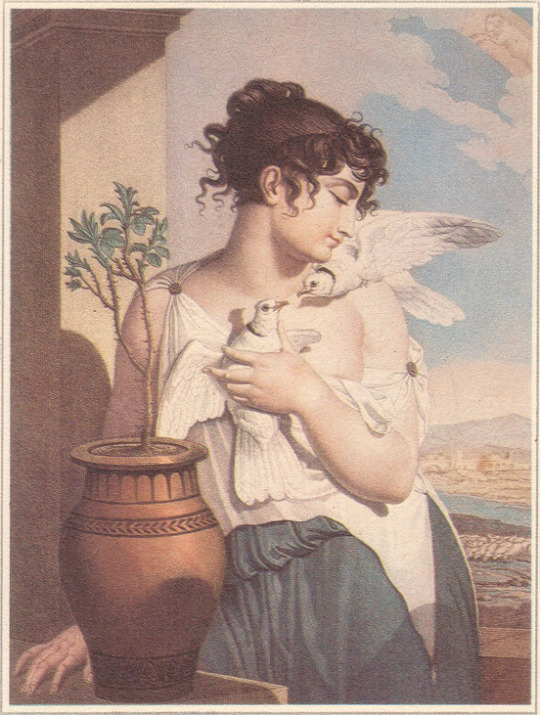

Le calendrier républicain, adopté pendant la Révolution française, était une tentative de rompre avec le passé monarchique et catholique en instaurant un système de mesure du temps basé sur les valeurs républicaines et agricoles. Chaque jour du calendrier républicain était dédié à une plante, un animal, un outil ou un événement symbolique, reflétant ainsi les idéaux de la Révolution.
Le mois de Germinal dans le calendrier républicain français représente le renouveau et la vitalité de la nature au printemps. Du 20 mars au 19 avril, Germinal est le mois où la terre se réveille de son sommeil hivernal, où les bourgeons éclosent et où les premières fleurs colorent les paysages. Il incarne le début de la saison des semailles et le travail de la terre, symbolisant ainsi l'espoir et la promesse d'une nouvelle récolte. Germinal rappelle également les idéaux républicains de liberté, d'égalité et de fraternité, en invitant chacun à contribuer à l'essor de la société et à cultiver un avenir meilleur.
La journée du 10 Germinal dans le calendrier républicain français était dédiée au "couvoir", un meuble ancien utilisé pour l'incubation des œufs. Cette journée était une occasion pour les républicains français de célébrer et de reconnaître l'importance de l'agriculture et de l'élevage dans la société.
Le couvoir était un élément essentiel de l'économie agricole, permettant aux agriculteurs d'augmenter leur production en élevant des poussins à partir d'œufs fécondés. C'était un processus méticuleux qui exigeait une surveillance constante de la température et de l'humidité pour assurer le bon développement des embryons.
Cette journée était l'occasion de sensibiliser à l'importance de protéger la biodiversité et de préserver les races de volailles locales.
Pour les écoliers et les étudiants, la journée du 10 Germinal était l'occasion d'apprendre sur l'histoire de l'agriculture et de l'élevage en France, ainsi que sur l'évolution des techniques et des outils utilisés dans ces domaines. C'était également une opportunité d'encourager les jeunes à s'impliquer dans l'agriculture et l'élevage, en tant que moyen de préserver notre patrimoine culturel et de contribuer à la sécurité alimentaire.
En résumé, la journée du 10 Germinal était une occasion de célébrer et de valoriser l'importance de l'agriculture et de l'élevage, ainsi que de sensibiliser à la préservation des traditions agricoles et artisanales françaises.
***
The Republican calendar, adopted during the French Revolution, was an attempt to break away from the monarchic and Catholic past by establishing a system of time measurement based on republican and agricultural values. Each day of the Republican calendar was dedicated to a plant, an animal, a tool, or a symbolic event, thus reflecting the ideals of the Revolution.
The month of Germinal in the French Republican calendar represents the renewal and vitality of nature in spring. From March 20 to April 19, Germinal is the month when the earth awakens from its winter slumber, when buds burst open, and the first flowers color the landscapes. It embodies the beginning of the sowing season and the work of the land, symbolizing hope and the promise of a new harvest. Germinal also recalls the republican ideals of liberty, equality, and fraternity, inviting everyone to contribute to the advancement of society and cultivate a better future.
The 10th of Germinal in the French Republican calendar was dedicated to the "couvoir," an ancient piece of furniture used for egg incubation. This day was an opportunity for the French republicans to celebrate and recognize the importance of agriculture and livestock in society.
The "couvoir" was an essential element of agricultural economy, allowing farmers to increase their production by raising chicks from fertilized eggs. It was a meticulous process that required constant monitoring of temperature and humidity to ensure the proper development of embryos.
This day provided an opportunity to raise awareness about the importance of protecting biodiversity and preserving local poultry breeds.
For schoolchildren and students, the 10th of Germinal was a chance to learn about the history of agriculture and livestock farming in France, as well as the evolution of techniques and tools used in these fields. It was also an opportunity to encourage young people to get involved in agriculture and livestock farming as a means of preserving our cultural heritage and contributing to food security.
In summary, the 10th of Germinal was an occasion to celebrate and value the importance of agriculture and livestock farming, as well as to raise awareness about preserving French agricultural and artisanal traditions.
8 notes
·
View notes
Text
Décadi 10 Germinal an CCXXXII
(Vendredi 29 mars 2024 / Friday, March 29th, 2024)
🇨🇵 Texte en français et en anglais / Text in French and English 🇬🇧/🇺🇲


Le calendrier républicain, adopté pendant la Révolution française, était une tentative de rompre avec le passé monarchique et catholique en instaurant un système de mesure du temps basé sur les valeurs républicaines et agricoles. Chaque jour du calendrier républicain était dédié à une plante, un animal, un outil ou un événement symbolique, reflétant ainsi les idéaux de la Révolution.
Le mois de Germinal dans le calendrier républicain français représente le renouveau et la vitalité de la nature au printemps. Du 20 mars au 19 avril, Germinal est le mois où la terre se réveille de son sommeil hivernal, où les bourgeons éclosent et où les premières fleurs colorent les paysages. Il incarne le début de la saison des semailles et le travail de la terre, symbolisant ainsi l'espoir et la promesse d'une nouvelle récolte. Germinal rappelle également les idéaux républicains de liberté, d'égalité et de fraternité, en invitant chacun à contribuer à l'essor de la société et à cultiver un avenir meilleur.
La journée du 10 Germinal dans le calendrier républicain français était dédiée au "couvoir", un meuble ancien utilisé pour l'incubation des œufs. Cette journée était une occasion pour les républicains français de célébrer et de reconnaître l'importance de l'agriculture et de l'élevage dans la société.
Le couvoir était un élément essentiel de l'économie agricole, permettant aux agriculteurs d'augmenter leur production en élevant des poussins à partir d'œufs fécondés. C'était un processus méticuleux qui exigeait une surveillance constante de la température et de l'humidité pour assurer le bon développement des embryons.
Cette journée était l'occasion de sensibiliser à l'importance de protéger la biodiversité et de préserver les races de volailles locales.
Pour les écoliers et les étudiants, la journée du 10 Germinal était l'occasion d'apprendre sur l'histoire de l'agriculture et de l'élevage en France, ainsi que sur l'évolution des techniques et des outils utilisés dans ces domaines. C'était également une opportunité d'encourager les jeunes à s'impliquer dans l'agriculture et l'élevage, en tant que moyen de préserver notre patrimoine culturel et de contribuer à la sécurité alimentaire.
En résumé, la journée du 10 Germinal était une occasion de célébrer et de valoriser l'importance de l'agriculture et de l'élevage, ainsi que de sensibiliser à la préservation des traditions agricoles et artisanales françaises.
***
The Republican calendar, adopted during the French Revolution, was an attempt to break away from the monarchic and Catholic past by establishing a system of time measurement based on republican and agricultural values. Each day of the Republican calendar was dedicated to a plant, an animal, a tool, or a symbolic event, thus reflecting the ideals of the Revolution.
The month of Germinal in the French Republican calendar represents the renewal and vitality of nature in spring. From March 20 to April 19, Germinal is the month when the earth awakens from its winter slumber, when buds burst open, and the first flowers color the landscapes. It embodies the beginning of the sowing season and the work of the land, symbolizing hope and the promise of a new harvest. Germinal also recalls the republican ideals of liberty, equality, and fraternity, inviting everyone to contribute to the advancement of society and cultivate a better future.
The 10th of Germinal in the French Republican calendar was dedicated to the "couvoir," an ancient piece of furniture used for egg incubation. This day was an opportunity for the French republicans to celebrate and recognize the importance of agriculture and livestock in society.
The "couvoir" was an essential element of agricultural economy, allowing farmers to increase their production by raising chicks from fertilized eggs. It was a meticulous process that required constant monitoring of temperature and humidity to ensure the proper development of embryos.
This day provided an opportunity to raise awareness about the importance of protecting biodiversity and preserving local poultry breeds.
For schoolchildren and students, the 10th of Germinal was a chance to learn about the history of agriculture and livestock farming in France, as well as the evolution of techniques and tools used in these fields. It was also an opportunity to encourage young people to get involved in agriculture and livestock farming as a means of preserving our cultural heritage and contributing to food security.
In summary, the 10th of Germinal was an occasion to celebrate and value the importance of agriculture and livestock farming, as well as to raise awareness about preserving French agricultural and artisanal traditions.
#calendrier#calendrier républicain#calendrier républicain français#calendrier révolutionnaire#calendrier révolutionnaire français#france#français#révolution#french revolution#Germinal#couvoir#oeufs#agriculture#nature#révolution française#french#french calendar#francais#revolutionary
8 notes
·
View notes
Text
Nonidi 9 Germinal an CCXXXII
(Jeudi 28 mars 2024 / Thursday, March 28th, 2024)
🇨🇵 Texte en français et en anglais / Text in French and English 🇬🇧/🇺🇲


Le calendrier républicain, adopté pendant la Révolution française, était une tentative de rompre avec le passé monarchique et catholique en instaurant un système de mesure du temps basé sur les valeurs républicaines et agricoles. Chaque jour du calendrier républicain était dédié à une plante, un animal, un outil ou un événement symbolique, reflétant ainsi les idéaux de la Révolution.
Le mois de Germinal dans le calendrier républicain français représente le renouveau et la vitalité de la nature au printemps. Du 20 mars au 19 avril, Germinal est le mois où la terre se réveille de son sommeil hivernal, où les bourgeons éclosent et où les premières fleurs colorent les paysages. Il incarne le début de la saison des semailles et le travail de la terre, symbolisant ainsi l'espoir et la promesse d'une nouvelle récolte. Germinal rappelle également les idéaux républicains de liberté, d'égalité et de fraternité, en invitant chacun à contribuer à l'essor de la société et à cultiver un avenir meilleur.
Le 9 Germinal était consacré à l'aulne, un arbre robuste symbole de vitalité et de résilience.
L'aulne a joué un rôle significatif dans l'histoire de la France et dans la vie quotidienne de ses habitants. Autrefois, ses feuilles servaient de nourriture pour le b��tail, tandis que son bois était utilisé dans la construction de bateaux, de ponts et d'autres structures essentielles. En outre, l'aulne était associé à des croyances et des traditions populaires, symbolisant souvent la régénération et la renaissance.
L'aulne est souvent associé aux milieux humides tels que les rivières, les marais, les lacs et les zones côtières. Il préfère les sols riches en nutriments et bien drainés, bien qu'il puisse tolérer des conditions de sol plus pauvres.
Les feuilles de l'aulne fournissent une source de nourriture pour de nombreux insectes et petits mammifères. De plus, ses branches offrent un habitat propice à la nidification pour une variété d'oiseaux.
Grâce à ses racines étendues et à sa croissance rapide, l'aulne aide à stabiliser les berges des cours d'eau, réduisant ainsi l'érosion et contribuant à la régulation des cours d'eau.
Le bois d'aulne est par ailleurs utilisé dans la construction de meubles, de tonneaux, de planchers et d'autres produits en bois. Il est apprécié pour sa résistance à l'eau et sa couleur rougeâtre distincte.
***
The Republican calendar, adopted during the French Revolution, was an attempt to break away from the monarchic and Catholic past by establishing a system of time measurement based on republican and agricultural values. Each day of the Republican calendar was dedicated to a plant, an animal, a tool, or a symbolic event, thus reflecting the ideals of the Revolution.
The month of Germinal in the French Republican calendar represents the renewal and vitality of nature in spring. From March 20 to April 19, Germinal is the month when the earth awakens from its winter slumber, when buds burst open, and the first flowers color the landscapes. It embodies the beginning of the sowing season and the work of the land, symbolizing hope and the promise of a new harvest. Germinal also recalls the republican ideals of liberty, equality, and fraternity, inviting everyone to contribute to the advancement of society and cultivate a better future.
The 9th Germinal was dedicated to the alder, a sturdy tree symbolizing vitality and resilience.
The alder has played a significant role in France's history and in the daily life of its inhabitants. In the past, its leaves served as food for livestock, while its wood was used in the construction of boats, bridges, and other essential structures. Additionally, the alder was associated with popular beliefs and traditions, often symbolizing regeneration and rebirth.
The alder is often associated with wet environments such as rivers, marshes, lakes, and coastal areas. It prefers nutrient-rich, well-drained soils, although it can tolerate poorer soil conditions.
The leaves of the alder provide a food source for many insects and small mammals. Furthermore, its branches provide a nesting habitat for a variety of birds.
Thanks to its extensive roots and rapid growth, the alder helps stabilize riverbanks, thus reducing erosion and contributing to watercourse regulation.
Alder wood is also used in the construction of furniture, barrels, floors, and other wooden products. It is valued for its water resistance and distinctive reddish color.
#calendrier#calendrier républicain#calendrier républicain français#calendrier révolutionnaire#calendrier révolutionnaire français#france#français#révolution#french revolution#agriculture#arbre#tree#aulne#alder#révolution française#french#french calendar#révolutionnaires#revolutionary#germinal#nature#bois#wood
2 notes
·
View notes
Text
Octidi 8 Germinal an CCXXXII
(Mercredi 27 mars 2024 / Wenesday, March 27th, 2024)
🇨🇵 Texte en français et en anglais / Text in French and English 🇬🇧/🇺🇲


Le calendrier républicain, adopté pendant la Révolution française, était une tentative de rompre avec le passé monarchique et catholique en instaurant un système de mesure du temps basé sur les valeurs républicaines et agricoles. Chaque jour du calendrier républicain était dédié à une plante, un animal, un outil ou un événement symbolique, reflétant ainsi les idéaux de la Révolution.
Le mois de Germinal dans le calendrier républicain français représente le renouveau et la vitalité de la nature au printemps. Du 20 mars au 19 avril, Germinal est le mois où la terre se réveille de son sommeil hivernal, où les bourgeons éclosent et où les premières fleurs colorent les paysages. Il incarne le début de la saison des semailles et le travail de la terre, symbolisant ainsi l'espoir et la promesse d'une nouvelle récolte. Germinal rappelle également les idéaux républicains de liberté, d'égalité et de fraternité, en invitant chacun à contribuer à l'essor de la société et à cultiver un avenir meilleur.
Le 8 Germinal dans le calendrier républicain était une journée dédiée à la jonquille, une fleur qui revêtait une symbolique particulière dans l'imaginaire collectif de l'époque révolutionnaire.
Cette journée était l'occasion de célébrer la nature et le renouveau qu'apporte le printemps, symbolisé par l'éclosion des fleurs. La jonquille, avec ses pétales jaunes éclatants, représentait à la fois la beauté et la résilience. Malgré sa délicatesse, elle poussait souvent dans des conditions difficiles, rappelant ainsi la force et la détermination du peuple.
Au-delà de sa symbolique esthétique, la jonquille était aussi associée à des valeurs républicaines fondamentales. Elle évoquait la lumière et l'espoir, rappelant aux citoyens les idéaux de liberté, d'égalité et de fraternité qui avaient guidé la Révolution française.
La journée du 8 Germinal était également l'occasion de sensibiliser à la préservation de la nature et à la nécessité de protéger la biodiversité. En mettant en avant la jonquille, les républicains encourageaient la prise de conscience de l'importance de préserver notre environnement pour les générations futures.
Ainsi, la célébration de la jonquille le 8 Germinal était bien plus qu'un simple hommage à une fleur. C'était un rappel des valeurs républicaines, un moment pour contempler la beauté de la nature et réaffirmer notre engagement envers la préservation de notre planète.
***
The Republican calendar, adopted during the French Revolution, was an attempt to break with the monarchical and Catholic past by establishing a system of time measurement based on republican and agricultural values. Each day of the Republican calendar was dedicated to a plant, an animal, a tool, or a symbolic event, thus reflecting the ideals of the Revolution.
The month of Germinal in the French Republican calendar represents the renewal and vitality of nature in spring. From March 20 to April 19, Germinal is the month when the earth awakens from its winter slumber, when buds open, and when the first flowers color the landscapes. It embodies the beginning of the sowing season and the work of the land, symbolizing hope and the promise of a new harvest. Germinal also recalls the republican ideals of liberty, equality, and fraternity, inviting everyone to contribute to the development of society and to cultivate a better future.
On the 8th of Germinal in the Republican calendar, a day was dedicated to the jonquil, a flower that held special significance in the collective imagination of the revolutionary era.
This day was an opportunity to celebrate nature and the renewal brought by spring, symbolized by the blooming of flowers. The jonquil, with its bright yellow petals, represented both beauty and resilience. Despite its delicacy, it often thrived in challenging conditions, reminding people of the strength and determination of the people.
Beyond its aesthetic symbolism, the jonquil was also associated with fundamental republican values. It evoked light and hope, reminding citizens of the ideals of liberty, equality, and fraternity that guided the French Revolution.
The 8th of Germinal was also an occasion to raise awareness about the importance of preserving nature and protecting biodiversity. By highlighting the jonquil, republicans encouraged awareness of the need to preserve our environment for future generations.
Thus, the celebration of the jonquil on the 8th of Germinal was more than just a tribute to a flower. It was a reminder of republican values, a moment to contemplate the beauty of nature, and reaffirm our commitment to preserving our planet.
#calendrier#calendrier républicain#calendrier républicain français#calendrier révolutionnaire#calendrier révolutionnaire français#france#français#révolution#french revolution#Germinal#agriculture#nature#flowers#fleurs#révolution française#french#french calendar#jonquilles#jonquil
5 notes
·
View notes
